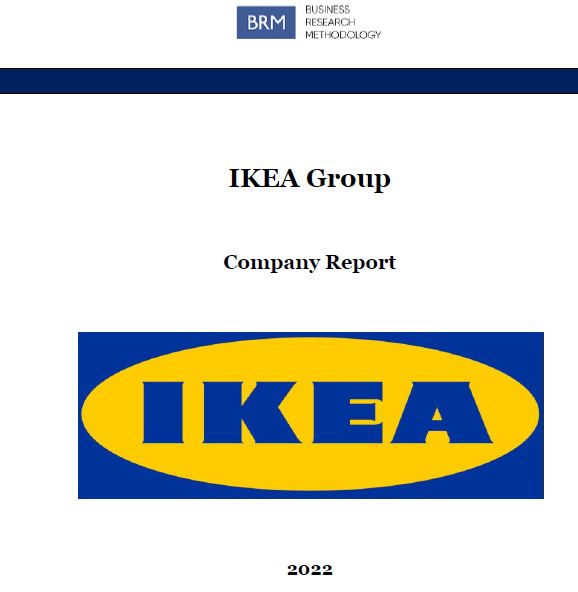IKEA Group Report 2022
$19.75
IKEA Group Report contains the application of the major analytical strategic frameworks in business studies such as SWOT, PESTEL, Porter’s Five Forces, Value Chain analysis, Ansoff Matrix and McKinsey 7S Model on IKEA. Moreover, the report contains analyses of IKEA’s business strategy, leadership and organizational structure and ecosystem. The report also analysis marketing strategy, ecosystem and discusses the issues of corporate social responsibility.
Description
IKEA Group owned by Stichting INGKA Foundation is the largest furniture and home appliances manufacturer and retailer in the world. Founded almost eight decades ago in Småland, southern Sweden by Ingvar Kamprad, today IKEA Group has 11 franchisees operating in more than 500 locations in 63 countries (Annual Report, FY21).
By the end of FY21 IKEA employed 225000 people worldwide, an increase of 8000 people compared to the previous year. The world’s largest furniture retailer offers nearly 12000 products and develops approximately 2000 new products each year. In FY21 the company generated total operated income of EUR 25.6 billion, an increase of 8.5% compared to the previous year. Net profit for the year amounted to EUR 1.4 billion (Annual Report, FY21).
IKEA’s vision is “to create a better everyday life for the many people” and the company follows an extreme cost leadership business strategy along with new product development strategy to realize this vision. International market expansion strategy also represents an important element of IKEA business strategy. Leadership style exercised to manage the home improvement and furnishing chain can be branded as leading by example, as set by the late founder of the business Ingvar Kamprad. Furthermore, the company has integrated the principles of frugality and intangible employee motivation into its leadership practices.
The Swedish furniture chain has devised a unique and complicated organizational structure designed to pay minimum taxes. IKEA possesses a number of noteworthy strengths such as market leadership, ownership and efficient application of democratic design concept and solid financial position of the business. At the same time, the global furniture retailer has serious weaknesses as well. These include weak presence in Asia, difficulty to sustain the competitive advantage and the lack of flexibility of the business due to its large size.
IKEA Group Report contains the application of the major analytical strategic frameworks in business studies such as SWOT, PESTEL, Porter’s Five Forces, Value Chain analysis, Ansoff Matrix and McKinsey 7S Model on IKEA. Moreover, the report contains analyses of IKEA’s business strategy, leadership and organizational structure and ecosystem. The report also analysis marketing strategy, ecosystem and discusses the issues of corporate social responsibility.

